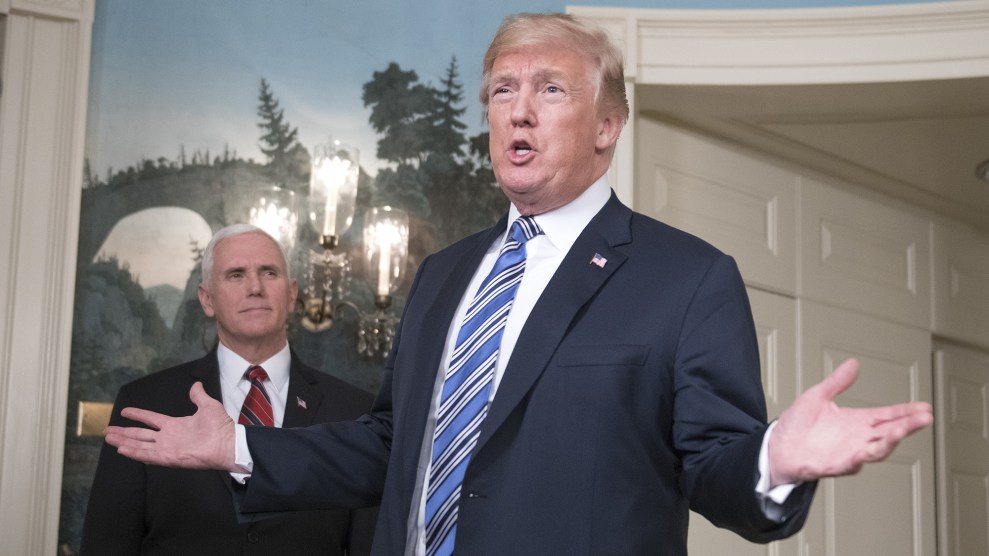
Ron Sachs/ZUMA
For nearly 30 years, Ken Isley served in the legal department of Dow Agrosciences, the pesticide division of chemical giant Dow. Most recently, he held the positions of vice president, general counsel, and secretary at the company, and on Thursday, the Trump administration tapped Isley to head the US Department of Agriculture’s Foreign Agricultural Service.
Dow Agrosciences’ former top lawyer will run an agency that “links U.S. agriculture to the world to enhance export opportunities and global food security,” according to the FAS website. It maintains a “global network of 93 offices covering 171 countries” staffed by “agricultural attachés and locally hired agricultural experts who are the eyes, ears, and voice for U.S. agriculture around the world.”
Isley will not be the only former Dow Agrosciences exec working on Trump’s ag team to open foreign markets for US goods. Indeed, Isley’s immediate boss will be a fellow alum of the company. In the USDA organizational chart, the FAS sits within the realm of the Under Secretary for Trade and Foreign Agricultural Affairs. Last year, Trump placed Ted McKinney in that position—a man who served for 19 years on Dow Agroscience’s government affairs (read: lobbying) team.
In its short life, the Trump administration has had a remarkably active relationship with Dow, the agrichemical division’s corporate parent. After the 2016 election, Dow donated $1 million to Trump’s inaugural committee. In March 2017, the Environmental Protection Agency reversed an Obama Administration plan to ban a widely used Dow Agroscience pesticide called chlorpyrifos, a potent neurotoxin—weeks after EPA director Scott Pruitt met privately with Dow CEO Andrew Liveris. In June, the Department of Justice approved Dow’s mega-merger with former rival DuPont.
















